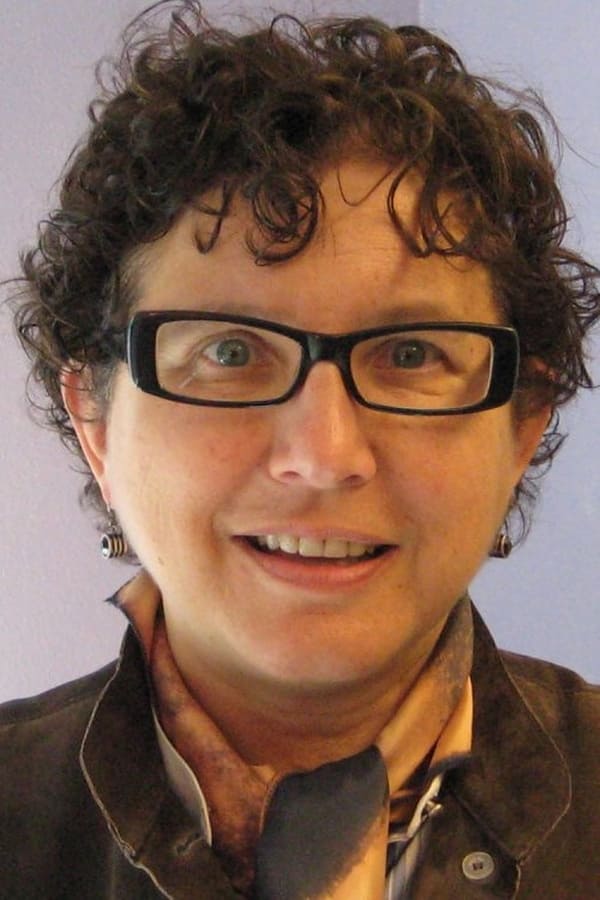
B. Ruby Rich
Known For
Acting
Details
Known For
Acting
Biography
B. Ruby Rich is an American scholar, critic of independent, Latin American, documentary and gay films, and a professor of Community Studies and Social Documentation also known as "SocDoc" at UC Santa Cruz. She has also taught documentary film and queer studies during spring semesters at UC Berkeley. She is credited with coining the term New Queer Cinema.
Rich began her career in film exhibition after graduating from college as co-founder of the Woods Hole Film Society. She then became associate director of the Film Center at the Art Institute of Chicago. After working as film critic for the Chicago Reader, she moved to New York City to become the director of the film program for the New York State Council on the Arts for a decade.
A working cultural theorist and critic since the mid-1970s, Rich has been closely identified with a number of important film movements, such as independent film in the U.S. and Europe, Latin American cinema and, more notably, as one of the most important voices in feminist film criticism.
Her presence at film festivals (such as Sundance, where she was an early member of the selection committee), her film reviews in major national publications, and her commentaries on the public broadcasting programs The World and Independent View, have secured her place as a central figure in the history of what she terms "cinefeminism."
B. Ruby Rich appears in the 2009 documentary film For the Love of Movies: The Story of American Film Criticism where she discusses the appeal of the film, Amélie, and expresses her desire for a new kind of criticism to emerge from young critics which goes beyond "the auteur theory."
Rich has been a regular contributor to the Village Voice, as well as the San Francisco Bay Guardian and the British Film Institute's Sight & Sound. She has also contributed to The Guardian, the Nation, ELLE, Mirabella, The Advocate and Out. She was the founding editor of film/video reviews for GLQ: A Journal of Lesbian and Gay Studies.
The cover of her classic 1998 book, Chick Flicks: Theories and Memories of the Feminist Film Movement, reads, "If there was a moment during the sixties, seventies, or eighties that changed the history of the women's film movement, B. Ruby Rich was there. Part journalistic chronicle, part memoir, and 100 percent pure cultural historical odyssey, Chick Flicks – with its definitive, the way-it-was collective essays – captures the birth and growth of feminist film as no other book has done."
Rich's observations cover such things as travel, sex, and voodoo, as well as the anti-pornography movement, the films of Yvonne Rainer, a Julie Christie visit to Washington, and the historically evocative film Maedchen in Uniform.
She introduces each of her essays with an autobiographical prologue that describes the intellectual, political, and personal moments from which the work arose, in the hope that a new generation of feminist film culture might be revitalized by reclaiming its own history.
Rich is the recipient of the 2006 Honorary Life Membership Award from the Society for Cinema and Media Studies; and she is the recipient of the 2007 Brudner Prize at Yale University.
B. Ruby Rich lives in San Francisco.
Rich began her career in film exhibition after graduating from college as co-founder of the Woods Hole Film Society. She then became associate director of the Film Center at the Art Institute of Chicago. After working as film critic for the Chicago Reader, she moved to New York City to become the director of the film program for the New York State Council on the Arts for a decade.
A working cultural theorist and critic since the mid-1970s, Rich has been closely identified with a number of important film movements, such as independent film in the U.S. and Europe, Latin American cinema and, more notably, as one of the most important voices in feminist film criticism.
Her presence at film festivals (such as Sundance, where she was an early member of the selection committee), her film reviews in major national publications, and her commentaries on the public broadcasting programs The World and Independent View, have secured her place as a central figure in the history of what she terms "cinefeminism."
B. Ruby Rich appears in the 2009 documentary film For the Love of Movies: The Story of American Film Criticism where she discusses the appeal of the film, Amélie, and expresses her desire for a new kind of criticism to emerge from young critics which goes beyond "the auteur theory."
Rich has been a regular contributor to the Village Voice, as well as the San Francisco Bay Guardian and the British Film Institute's Sight & Sound. She has also contributed to The Guardian, the Nation, ELLE, Mirabella, The Advocate and Out. She was the founding editor of film/video reviews for GLQ: A Journal of Lesbian and Gay Studies.
The cover of her classic 1998 book, Chick Flicks: Theories and Memories of the Feminist Film Movement, reads, "If there was a moment during the sixties, seventies, or eighties that changed the history of the women's film movement, B. Ruby Rich was there. Part journalistic chronicle, part memoir, and 100 percent pure cultural historical odyssey, Chick Flicks – with its definitive, the way-it-was collective essays – captures the birth and growth of feminist film as no other book has done."
Rich's observations cover such things as travel, sex, and voodoo, as well as the anti-pornography movement, the films of Yvonne Rainer, a Julie Christie visit to Washington, and the historically evocative film Maedchen in Uniform.
She introduces each of her essays with an autobiographical prologue that describes the intellectual, political, and personal moments from which the work arose, in the hope that a new generation of feminist film culture might be revitalized by reclaiming its own history.
Rich is the recipient of the 2006 Honorary Life Membership Award from the Society for Cinema and Media Studies; and she is the recipient of the 2007 Brudner Prize at Yale University.
B. Ruby Rich lives in San Francisco.
B. Ruby Rich's LGBTQ+ Titles
Acting (17)
2024
A New Way of Seeing: B. Ruby Rich on Chantal Akerman as Self
2021
Ahead of the Curve as Self
2021
Pride as Self (6 episodes)
2021
Jodie Foster: Hollywood Under the Skin as Self
2018
The Difference Between You and Me as Self
2018
Dykes, Camera, Action! as Self
2016
Johnny Guitar: A Feminist Western? as Self
2016
Johnny Guitar: A Western Like No Other as Self
2015
Feelings Are Facts: The Life of Yvonne Rainer as Self
2015
Masculinity/Femininity as Self
2010
!W.A.R.: !Women Art Revolution as Self
2009
Mutantes: Punk Porn Feminism as Self - Interviewee
2009
It Came from Kuchar as Self
2006
Fabulous! The Story of Queer Cinema as Self
1999
Conversations with Intellectuals About Selena as Self
1993
Made in the USA as Self
1976
Chantal Akerman: An Interview as B. Ruby Rich
Directing (1)
1976
Chantal Akerman: An Interview
• Director

